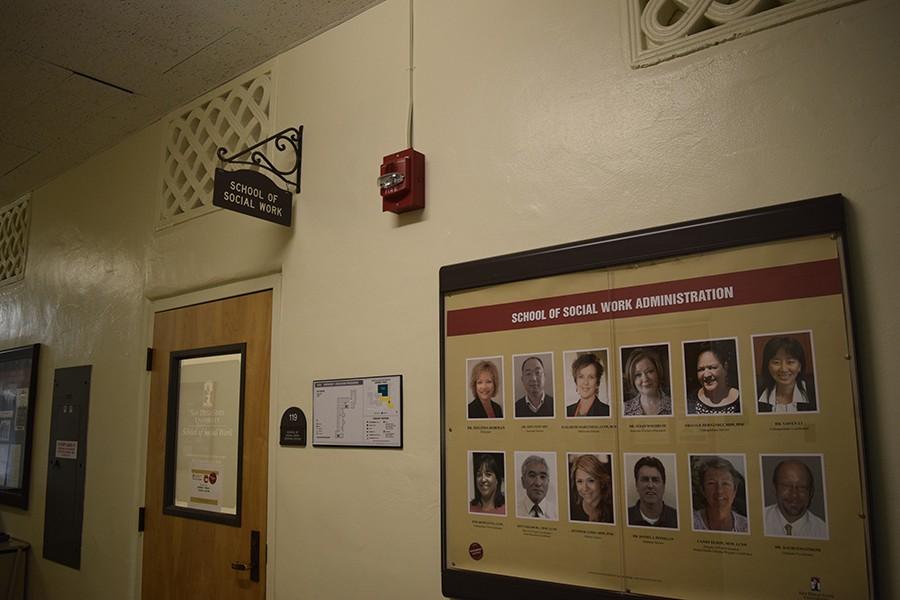The Social Policy Institute in San Diego State’s School of Social Work recently received a $8 million grant to create a statewide training program for social workers.
The grant, funded by the California Department of Social Services’ Adult Programs Division, will help develop a training program that aims to help elderly, blind and disabled Californians stay out of institutional care.
The program will be developed over the course of three years by the Social Policy Institute, with help from the Academy for Professional Excellence and SDSU’s Institute on Aging.
The target group for the program is California social workers who assess eligibility for In-Home Supportive Services.
There are more than half a million Californians receiving IHSS programs across the state, Social Policy Institute Director Steven Hornberger said.
“Most people — even if they have limited mobility or limited faculty or limited capabilities — would much rather be in their own home than be in a residence,” he said.
Certified nursing assistant and public health junior Jessica Adams has worked both in nursing homes and in the home health care system.
“They recover and get better much (more easily) in their own homes because it’s comfortable for them, it’s where they’ve always been, and then they don’t feel as sick, so I think it’s much better to keep people at home,” she said.
In addition to improving the quality of life of IHSS consumers, limiting the amount of residents in institutional care would help taxpayers save money.
“If a person can remain in-home, it’s much less expensive to provide the care they need than if they have to go to a skilled nursing home or a residential program,” Hornberger said.
The announcement of the grant coincided with the implementation of the the fair labor standard act on Feb. 1, which would change the federal labor standards in terms of being paid overtime for caregivers in California, Hornberger said.
“So the immediate push was to create materials and webinars and training of trainers to these new standards,” Hornberger said.
The training program will teach social workers to uniformly assess and authorize IHSS program benefits to consumers, promote choice and self-direction in daily life for IHSS consumers, support those served in achieving the level of physical, mental and psychosocial well-being that is possible and desirable for each individual, and facilitate the highest quality of care, according to NewsCenter.
In addition to the development of the training program, the Institute on Aging will also be conducting additional research that will focus on the effectiveness of the training programing, as well as the growing field of gerontology, Hornberger said.
Although the Social Policy Institute at SDSU has been active in the past, the institute has been on pause for the past couple of years, Hornberger said.
“I started teaching at SDSU last year, and identified some areas where there could be a contribution from the school of social work to San Diego as well as the profession as well and California,” he said.
The training program marks the first project under one of three areas of research the Social Policy Institute plans to initiate: aging, health and behavioral health, and child welfare, Hornberger said.
“One of my goals for the institute is to be a real source of information and communication, for the respective stakeholders in SDSU as well as the larger San Diego and California community,” he said.









